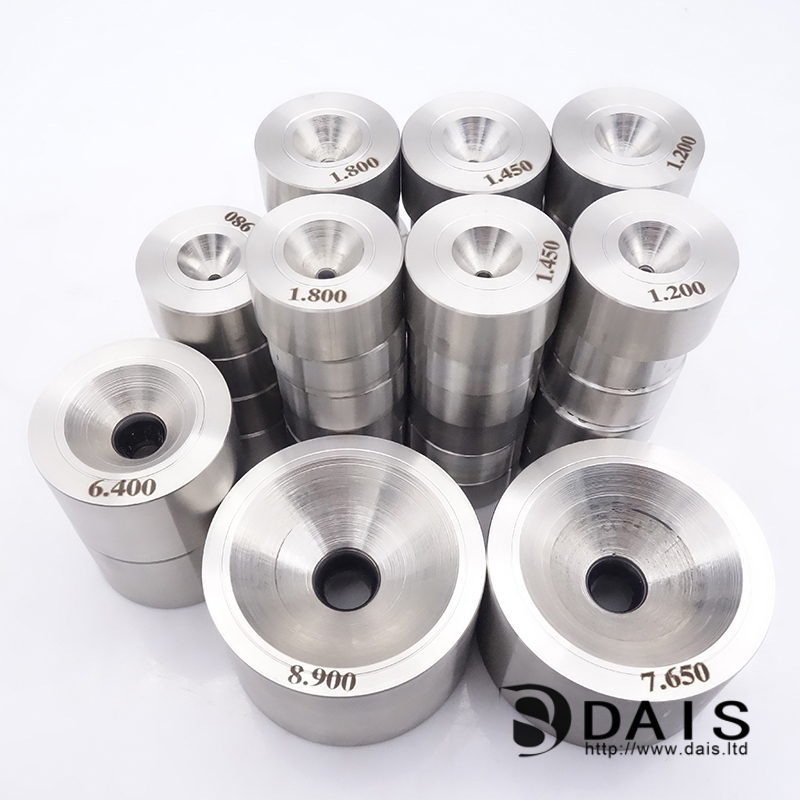Search

ADD:Building 123, Phase 3, Enterprise Base, No. 1 Lianhua Street, High-tech Industrial Development Zone, Zhengzhou, Henan, China
MOB.: +86-15517518512
MOB.: +86-15515520695
E-MAIL: admin@dais.ltd

In metal pressure processing, the metal is forced through the mold under the action of external force, the cross-sectional area of the metal is compressed, and the tool that obtains the required cross-sectional area shape and size is called a wire drawing die.
Wire drawing dies have a wide range of uses, such as high-precision wires used in electronic devices, radar, television, instrumentation and aerospace, as well as commonly used tungsten wires, molybdenum wires, stainless steel wires, wires and cables, and various alloy wires. The manufactured diamond wire drawing die adopts natural diamond as raw material, so it has strong wear resistance and extremely long service life. The production process of wire drawing die inserts includes several process steps such as pressing die, drawing die, and turning.
The wire drawing die is the metal wire passing through a mold to gradually reach the size that people need from thick to thin. This special mold is the drawing die. The core of the drawing die is generally made of natural diamonds, artificial diamonds (man-made diamonds) There are GE, PCD, synthetic materials, etc.). The copper wire drawing die is a flexible wire drawing die. There are also hard wire drawing dies, such as tungsten wire. The angle of the compression zone of the copper wire drawing die is generally 16-18 degrees. The diameter length is 30-40% and the angle of the compression zone of the tungsten wire drawing die is relatively small, generally 12-14 degrees, and the fixed line length is 60-70%.
Drawing dies include diamond drawing dies, cemented carbide drawing dies, plastic drawing dies, etc.